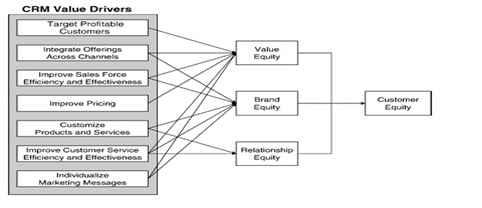- Business Concepts ›
- Marketing and Strategy ›
- Customer Equity
Customer Equity - Definition & Meaning
This article covers meaning & overview of Customer Equity from marketing perspective.
Customer Equity Definition
The customer equity of a firm is defined as the present value of the total revenues that the customer base of the firm will generate in its lifetime. A company with higher equity is valued higher than the one with lower equity. The following three factors drive customer equity:
- Value Equity: This measures how the customer perceives the firm in terms of the product the quality, price and convenience. This is parallel to the concept of “value for money”.
- Brand Equity: This measures how the customer feels about the firm. This includes brand awareness, brand recall and the emotional connect of a customer with the firm.
- Retention Equity: This measures the tendency of a customer to be loyal to the brand. This can be measured by the loyalty programs, its reputation etc.

This article has been researched & authored by the Business Concepts Team which comprises of MBA students, management professionals, and industry experts. It has been reviewed & published by the MBA Skool Team. The content on MBA Skool has been created for educational & academic purpose only.
Browse the definition and meaning of more similar terms. The Management Dictionary covers over 1800 business concepts from 5 categories.
Continue Reading:
What is MBA Skool?About Us
MBA Skool is a Knowledge Resource for Management Students, Aspirants & Professionals.
Business Courses
Quizzes & Skills
Quizzes test your expertise in business and Skill tests evaluate your management traits
Related Content
All Business Sections
Write for Us